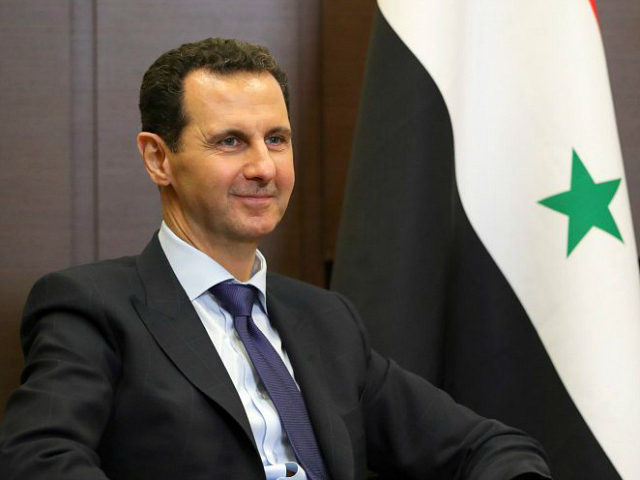Representatives from the Iranian, Russian, and Turkish governments met in the Russian resort city of Sochi on Monday to discuss the future of Syria, including humanitarian concerns, de-escalation zones, and the structure of post-civil war government.
According to Iran’s Tasnim news agency, U.N. observers were present at the meeting as well:
“The participants will exchange opinions on the process of facilitating inter-Syrian dialogue based on the Resolution 2254 of the UN Security Council and the decisions of the Syrian National Dialogue Congress in Sochi. They will continue the discussion of further steps in the interest of launching the constitutional committee as soon as possible, as a key element of promoting political regulation of the Syrian crisis,” the Russian Foreign Ministry said.
The Russian delegation is headed by Russia’s Special Presidential Envoy for Syria Alexander Lavrentyev and Deputy Foreign Minister Sergey Vershinin. The Iranian and Turkish delegations are led by deputy foreign ministers Hossein Jaberi Ansari and Sedat Onal respectively.
UN Special Envoy for Syria Staffan de Mistura and delegates from Jordan will act as observers. UN High Commissioner for Refugees Filippo Grandi has also been invited to the meeting.
Radio Free Europe portrayed the talks, scheduled to last for two days, as an extension of the negotiations in Astana, Kazakhstan, last year.
The protracted Astana negotiations were criticized at the time for undermining U.N.-sponsored negotiations in Geneva, excluding too many Syrian opposition groups, marginalizing the United States and its allies, and producing few accomplishments with any lasting impact on the Syrian civil war. Syrian opposition leaders complained the Astana process was designed to divide and conquer resistance to dictator Bashar Assad, who has constantly violated the “de-escalation zones” supposedly established in Astana to attack rebel positions.
Proponents of the Astana talks countered that U.N.-sponsored negotiations had stalled out, the U.S. and other Western nations declined invitations to participate in Astana because they wanted to support the Geneva process, and the U.N. process was not adequately accounting for changing realities on the ground in Syria (i.e. the Assad regime was finally winning the civil war with Russian and Iranian assistance).
According to Radio Free Europe, Turkish President Recep Tayyip Erdogan will host a Syria summit with France, Germany, and Russia on September 7, which looks like Erdogan’s effort to bring the Europeans into the Astana/Sochi dialogue. Turkey has a longstanding animus against the Assad regime and supported rebel groups during the civil war, but has lately given up on the notion of overthrowing Assad and seems more intent on securing its interests in Syria, especially keeping the border region clear of Kurdish militias regarded as a terrorist threat by Turkey.
Turkey’s Andalou news agency reports that a representative for the main Syria opposition group is attending the Sochi conference, along with a representative of the Syrian government. A top item on the agenda is the Assad regime’s military buildup in Idlib province, which looks like the prelude to a major attack on the Turkmen Mountain region within one of the so-called “de-escalation zones.”
Russian media claims Moscow is primarily interested in setting up “humanitarian corridors” through which vetted civilians can leave Idlib, a province that has become the final holdout of rebel groups falling back from defeats elsewhere in Syria. Idlib is largely covered by the Astana de-escalation agreement, but if the Russians are ostentatiously evacuating civilians while Damascus masses troops, it is unlikely de-escalation will last much longer.
Assad himself referred to Idlib as “our target” in an interview with Russian media last week, a grim omen of things to come. The Turks are nervous about U.N. estimates that over two million people could be displaced by a major Idlib offensive, and most of them will head for the Turkish border. Turkish security forces have been pushing refugees back into Idlib, sometimes using deadly force.
The Syrian Kurds separately held what they described as “positive and promising” talks with the Assad regime in Damascus over the weekend. The Kurds are concerned with attacks launched by resurgent Islamic State groups against the Druze minority, with dozens of kidnappings and murders reported since ISIS fighters were pushed into Druze territory.
Reuters on Monday portrayed Assad as entering the “path to a final victory,” although he must step around a few “diplomatic landmines” and probably won’t regain control over “every inch” of Syria, as he promised to do.
In this analysis, the Sochi summit is part of Russia’s plan to nudge Western powers into reluctantly accepting that Assad is not going anywhere, as Turkey seems to have done. Turkey’s pressing concerns include maintaining its Kurd-free buffer zone on the border and heading off an Assad offensive that could drive a flood of refugees across the Turkish border.
Erdogan recently claimed he has personally asked Russian President Vladimir Putin to intervene with Assad and convince him to hold off on that offensive. Syrian rebel commanders, on the other hand, expect Assad to attack at any moment, probably with Russian air support.
These are the details Russia, Iran, Turkey, and Syria need to hammer out in Sochi. The negotiations will bear little resemblance to what the United Nations describes as a “peace process.”

COMMENTS
Please let us know if you're having issues with commenting.